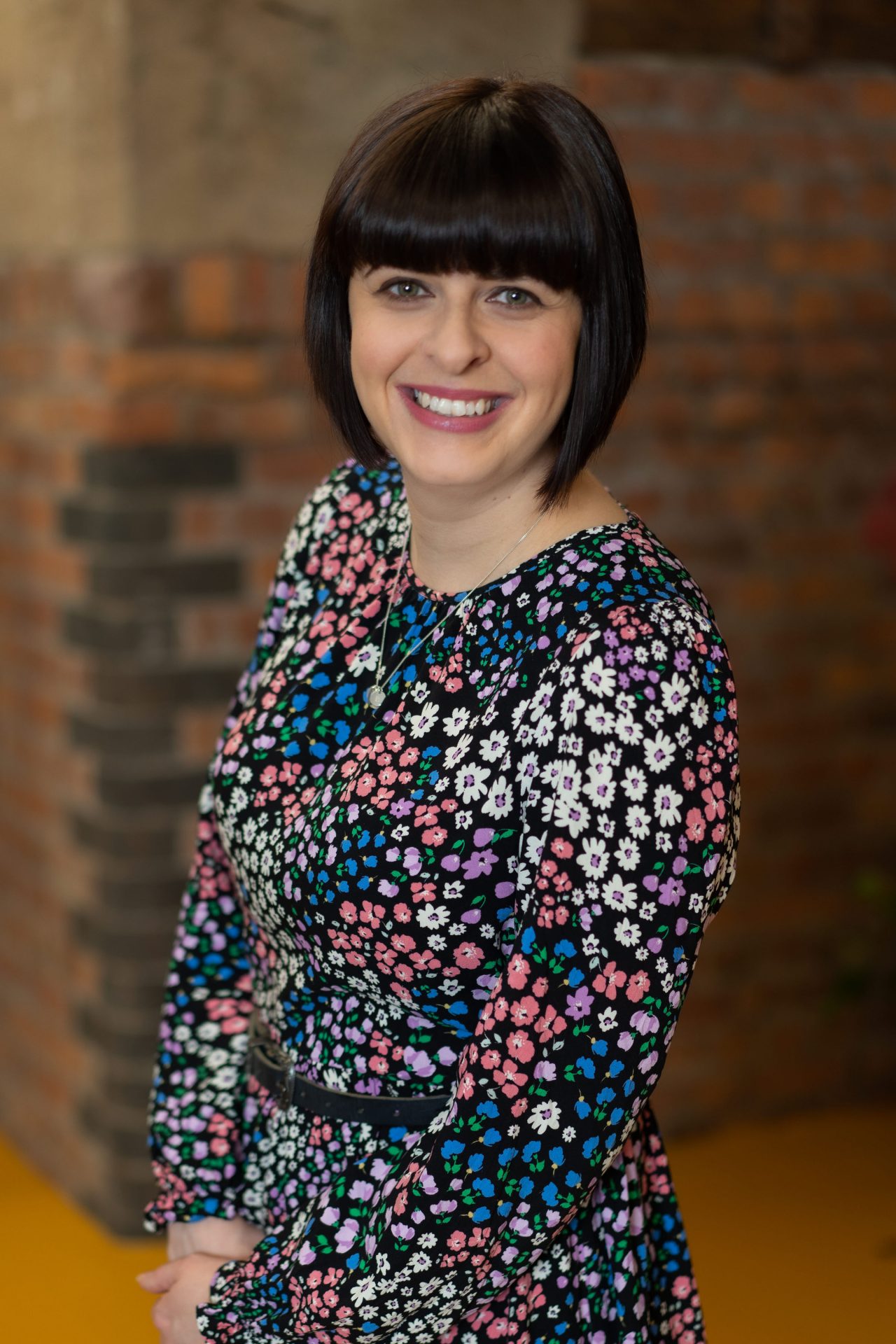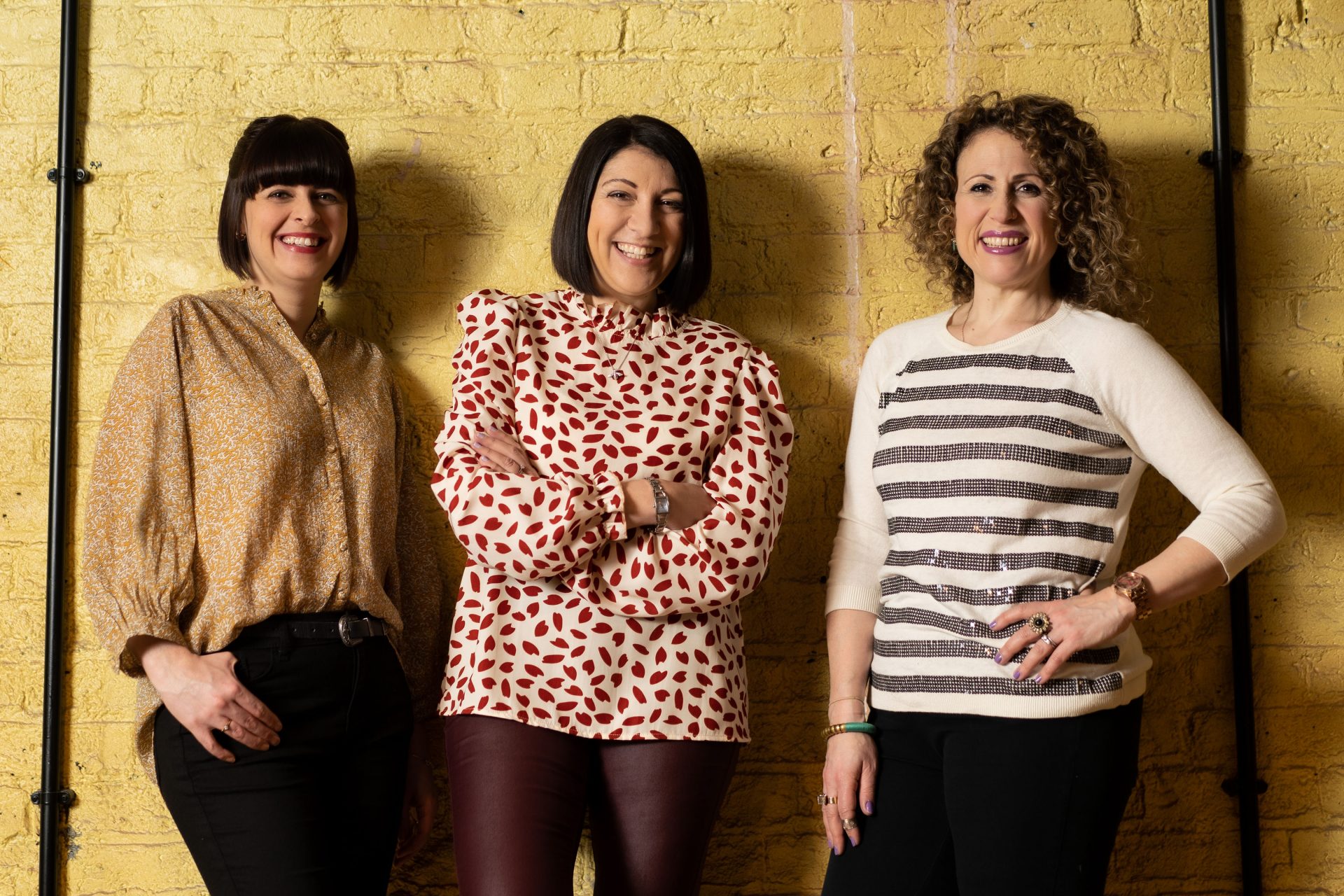“Coronation Street’s errors around POI, IVF and donor eggs cause more pain for infertile women”

Written by Becky Kearns
The ITV soap’s attempt to shed light on premature ovarian insufficiency is a missed opportunity, says campaigner Becky Kearnes
I was 27, a little older than Coronation Street’s Faye Windass when I was diagnosed with premature ovarian insufficiency (POI, also known as premature menopause) and heard the life-changing words: “You may not be able to have children.” In that moment, the future I had imagined for myself disappeared. I had to come to terms with the fact that I may never have a genetic child or pass on my ‘legacy’. I was grieving and lonely. I hadn’t heard of anyone else who’d faced this diagnosis or the dilemma of what to do next.
But my story has a happy ending. I did become a mum thanks to egg donation, which allowed me to carry, birth and raise my three wonderful girls: Mila, 5, and her twin sisters Eska and Lena, 4. Coming to the decision to use someone else’s eggs to conceive wasn’t easy. It was a complex process, with grief and fear stemming from a lack of awareness, society’s focus on family resemblances and whether I’d feel like, or be seen, as a ‘real’ mum.
After my difficult path to parenthood, I started to share my story about how I redefined what it meant to be a mum and connected with thousands of others through my Instagram account and blog, Defining Mum. I felt compelled to make the journey less isolating for those who’d be walking this path in the future and wanted to reassure those with the same fears that I once held that you can still be a mum; that being a mother is an act, an intention and not solely defined by genetics.
So when I heard that Coronation Street was running a POI storyline, I had hope that this was going to bring a much-needed topic out of the shadows and cast light on the challenges faced when told that you’re entering early menopause and may not be able to have children. This was a great opportunity for others like me to feel seen, represented and to raise awareness and change perceptions to a wide audience within society.
These hopes were soon dashed. My heart sank as I listened to a medical professional telling Faye that she couldn’t have children, describing egg donation as an option: “Not with your own eggs, but it is possible for you to be a surrogate with an IVF donor.”
Like many others in my community, I was left speechless and had to rewatch the scene several times to believe what I was hearing, which appeared to be poor research, incorrect language and little understanding of egg donation as a path to parenthood.
The doctor’s words were so far from my reality. A surrogate is defined as “a type of pregnancy in which a woman carries and gives birth to a baby for a person who is not able to have children”. Using donor eggs to conceive is not surrogacy. I am not my children’s surrogate; I am their mum. Not their genetic mum, but still a real, ‘proper’ mum. There is a huge difference between being a surrogate for a woman who couldn’t carry her own child and using another woman’s eggs to carry your own child.
Even though this is a fictional storyline, many who watch it will take it as fact. It will be their only exposure to family building in this way. Some members of my community have been mistakenly referred to as a surrogate when they’ve used donor eggs to conceive and shared with me how triggering, hurtful and minimising it was to their role as a mother.
When Faye replied, “But the baby won’t be mine, will it?” I would have loved Corrie to have offered some hope; for the doctor to have shared that it’s not solely genetics but also relationships that make a family, and that Faye could still be a mum. Instead, the suggestion of her not being what is perceived as a ‘real’ mum was very much left hanging in the air.
Incorrect terminology such as this can be incredibly damaging and triggering to many that have been through a difficult path to parenthood. Julianne Boutaleb, a perinatal psychologist who works with people building their families through donor conception, worries that this will put off prospective parents and leave families open to hurtful and ignorant comments.
“Many couples who turn to donor conception often face the journey alone and in secrecy as they struggle to explain to family and friends the complex reality of becoming parents in this way,” she says. “The words used here will have stirred up all those negative feelings of shame, otherness and trauma that they often come to therapy to deal with.”
Many women who have used or are contemplating using an egg donor to conceive have been left devastated by this representation of their real-life situation, with one telling me that she was about to introduce the idea to her parents but now feels unable to, knowing that her mum watches Coronation Street and fears that she now won’t understand.
Misconceptions such as this are one of the biggest sources of pain for those struggling to conceive and bring home a baby. Wanting to help drive change, alongside the advocacy work I now do with POI and donor conception, I’ve combined my professional HR and personal experience to co-found an organisation called Fertility Matters at Work. We aim to raise awareness and educate employers about these misconceptions and how they can better support, engage, attract and retain those trying to build their families. We’re now working to bring discrimination issues to parliament in an attempt to provide legal rights to women in the workplace while going through treatment.
Conversations about fertility have come on in leaps and bounds over the past three years as patient advocates, like me, have worked hard to dispel myths and challenge the stigma, and television producers have a responsibility to sensitively and accurately portray these types of storylines. It’s understandable that there will be added drama because of the nature of the show, but we shouldn’t have to correct inaccurate terminology portrayed by medical professionals; script writers have a responsibility to consider the impact and get these words right.
I credit ITV and Coronation Street for handling such a sensitive subject matter in the mainstream and hope the storyline can continue, but please can this be in consultation with real-life families and organisations, such as The Daisy Network and Donor Conception Network, to better understand the complexities and sensitivities. We need storylines such as this to amplify real-life voices, raise awareness and change the way that these taboo topics are viewed for the better.
Images:
Source: Read Full Article

